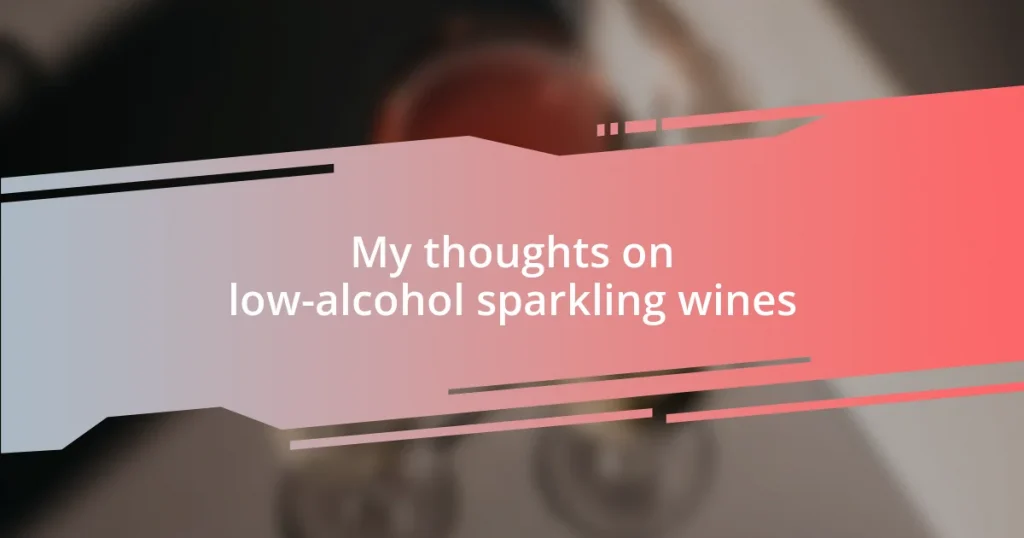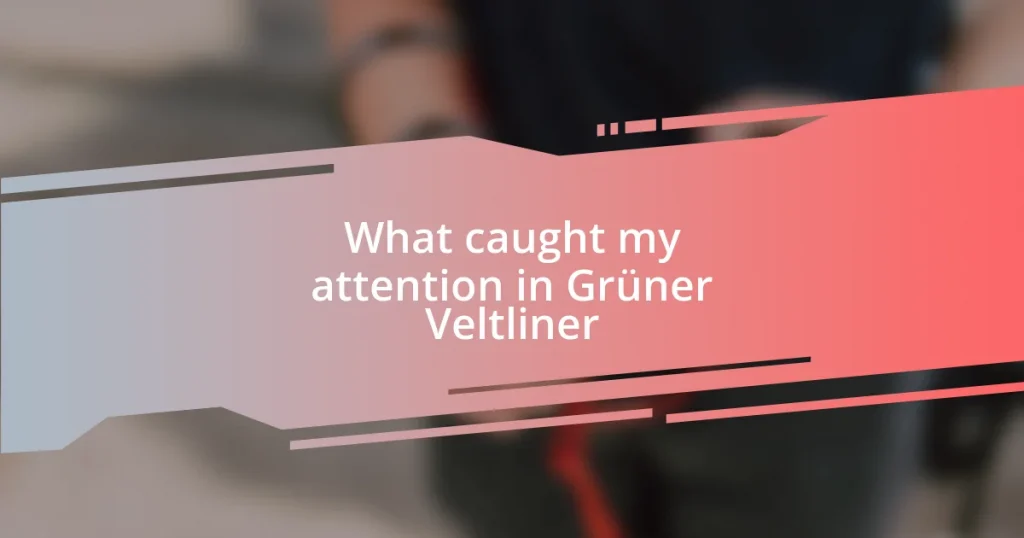Key takeaways:
- Low-alcohol sparkling wines have less than 8% alcohol by volume, offering a refreshing alternative for mindful drinkers.
- Health benefits include fewer calories, better hydration, and reduced hangover risk, making them suitable for social occasions.
- Popular brands like Freixenet, Chandon Garden Spritz, and Lindemans provide enjoyable low-alcohol options that enhance festive experiences.
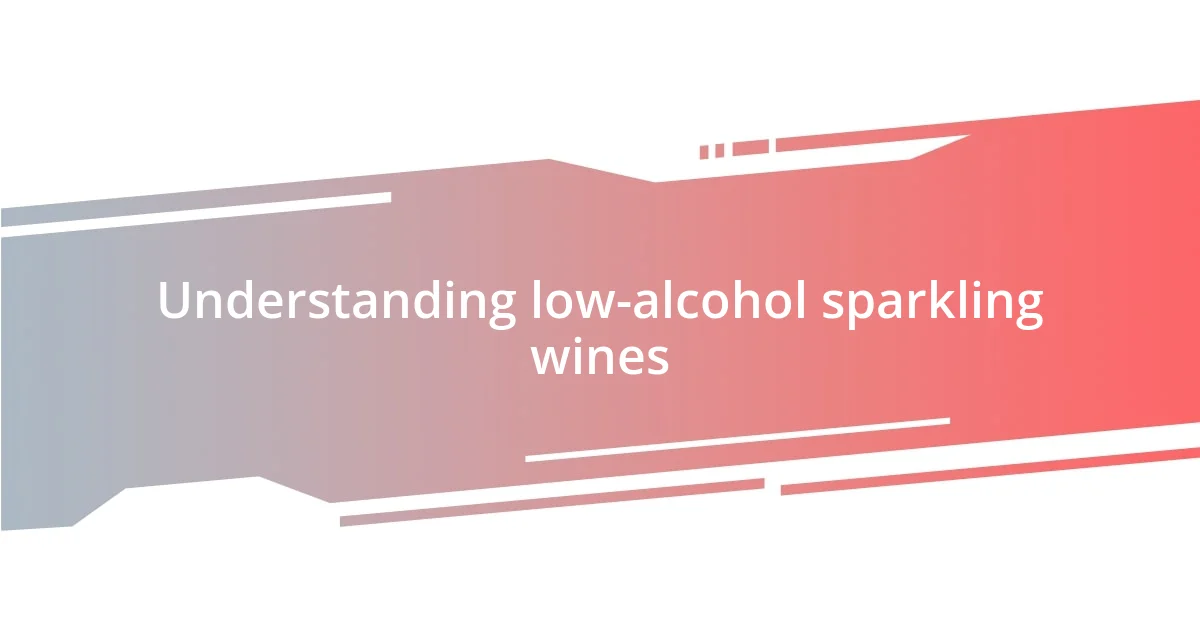
Understanding low-alcohol sparkling wines
Low-alcohol sparkling wines typically contain less than 8% alcohol by volume, making them an excellent choice for those who enjoy bubbly but want to be mindful of their intake. I remember the first time I stumbled upon a low-alcohol prosecco at a local wine shop. It was a revelation! The crispness and refreshing notes were remarkably comparable to their higher-alcohol counterparts.
Understanding the appeal of these wines often revolves around their versatility. They’re perfect for brunch, light celebrations, or simply enjoying on a sunny afternoon. I’ve found that serving a low-alcohol sparkling wine at a gathering can spark delightful conversations—people often remark on how they’re pleasantly surprised by the taste, forgetting they’re choosing a lighter option entirely.
The production process for low-alcohol sparkling wines can vary, but many producers focus on maintaining the wine’s fruit character while reducing fermentation time or employing specific techniques to lower alcohol levels. Have you ever considered how this might enhance the wine’s natural flavors? I’ve tasted some that practically burst with fruitiness, leaving me to wonder if they might just be the unsung heroes of the wine world.
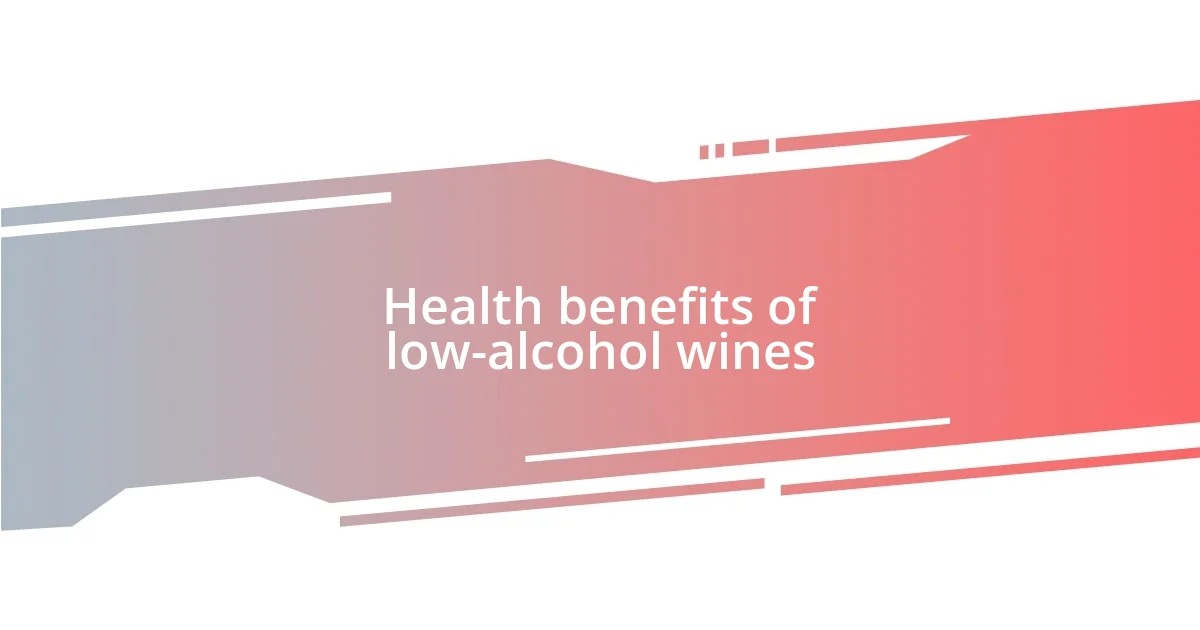
Health benefits of low-alcohol wines
Low-alcohol sparkling wines not only cater to those looking to enjoy a bubbly experience with less alcohol but also come with some noteworthy health benefits. Personally, I’ve found that switching to these lighter options on social occasions has helped me feel more energized afterward, rather than weighed down. Studies suggest that moderate alcohol consumption can contribute to cardiovascular health, and with lower alcohol levels, enjoyment becomes even more accessible.
Here are some advantages I’ve personally experienced:
- Fewer calories: With less alcohol generally comes fewer calories, which aligns with a healthier lifestyle.
- Better hydration: I often find I stay better hydrated when opting for low-alcohol sparkling wines, as they encourage me to sip and savor rather than rush.
- Reduced hangover risk: On occasions where I’ve indulged in more traditional wines, the aftermath can be less than enjoyable; the lighter alternatives help mitigate that risk significantly.
I always appreciate how these choices let me socialize without the lingering dread of feeling sluggish the next day.
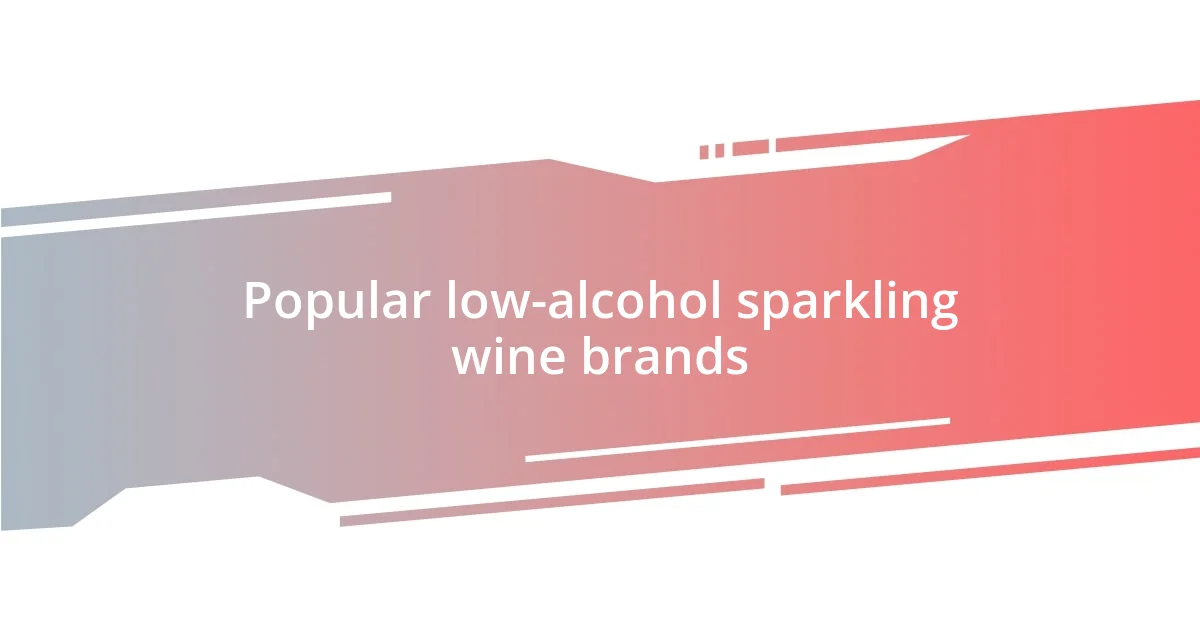
Popular low-alcohol sparkling wine brands
When it comes to brands I’ve come to admire in the low-alcohol sparkling wine category, Freixenet’s 0.0% Sparkling Wine often leads the list. It’s fascinating how they’ve managed to replicate that beloved bubbly feeling without the alcohol. I remember introducing this to friends at a gathering, and the collective oohs and aahs spoke volumes—it tasted delightfully refreshing, proving that less can certainly be more.
Another brand that caught my attention is Chandon Garden Spritz, which balances low alcohol with vibrant flavors. I once shared a bottle during a Saturday picnic, and its citrusy essence combined with the lower alcohol content made it the perfect companion on a warm day. Have you ever had that moment where a drink just amplifies your experience? This one did for me, and it’s now a staple in my summer get-togethers.
Lastly, I can’t overlook Lindemans, known for their light sparkling wines that are approachable for anyone curious about the genre. One afternoon, I sipped their low-alcohol bubbly while relaxing on my patio, and it struck me how versatile it was—suitable for sipping solo or pairing easily with light appetizers. Isn’t it great when a wine transcends occasions like that? It truly makes enjoying sparkling wines feel more inclusive and less daunting.










